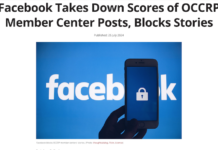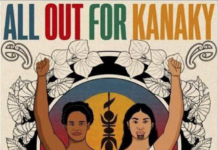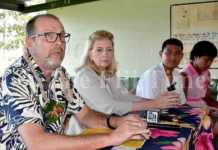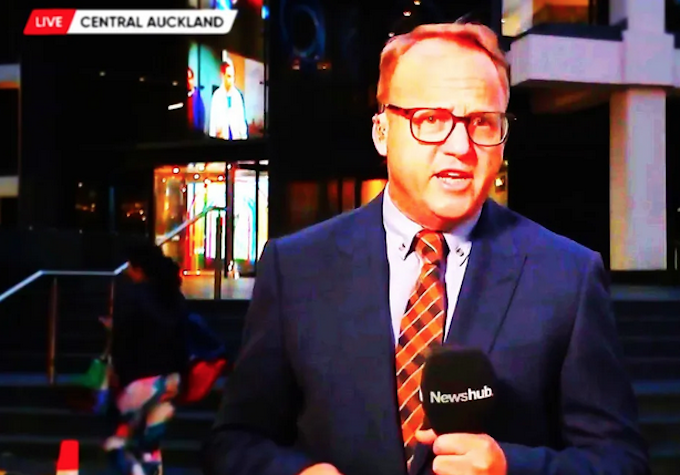
This week the two biggest TV broadcasters in Aotearoa New Zealand confirmed plans to cut news programmes by midyear – and the jobs of a significant proportion of this country’s journalists.
Many observers said this had been coming but few seemed to have a plan for it, including the government.
Mediawatch looks at what viewers will lose, efforts to resist the cuts and talks to the news chief at Newshub which is set to close completely.
By Colin Peacock, RNZ Mediawatch presenter
On the AM show last Wednesday, newsreader Nicky Styris suffered a frog in the throat at the wrong time.
Host Melissa Chan Green took over her bulletin while Styris quickly recovered. Minutes later Styris had to take the place of no-show panel guest Paula Bennett.
Just before that, viewers saw co-host Lloyd Burr on his knees fixing the studio flat-pack furniture with a drill.
- LISTEN TO RNZ MEDIAWATCH: Cutbacks in NZ television
- Geopolitical reasons why Warner Bros were always going to mutilate NZ’s Newshub
- Journalists offered ‘radical’ solution to save part of Newshub, says Gower
- Journalist Paddy Gower on closure of Newshub’s newsroom
- ‘Economic headwinds’ force Newshub shutdown, media jobs cut in NZ
Three hours later they were at an all-staff meeting at which executives from offshore owner Warner Bros Discovery (WBD) confirmed the complete closure of Newshub by midyear.
On TVNZ’s Midday news soon after, reporter Kim Baker-Wilson was live from the scene of the announcement of Newshub’s demise.
The previous day the roles were reversed, with Newshub’s Simon Shepherd outside TVNZ’s building reporting TVNZ’s Midday had been scrapped, along with the late news Tonight and Fair Go.
On Wednesday TVNZ also confirmed flagship current affairs show Sunday will cease next month.
So as things stand, it’s the end of the line for all news bulletins on TVNZ other than 1 News at 6, though the news-like shows Breakfast and Seven Sharp survive because they accommodate lucrative sponsored content (“activations” in the ad business) as well as ads.
And TV channel Three will be entirely news-free for the first time in its 35-year history.
Senior journalists led by investigations editor Michael Morrah presented a proposal for a stripped-back and shortened news bulletin to keep the Newshub name alive (and some jobs) but while WBD took it seriously, it eventually turned the idea down.
Another media player to fill the Newshub void?
There have been rumours and reports that other media companies were talking to WBD about filling the Newshub at 6 news void.
Initially light-on-detail reports of lifelines suggested a possible sale of Newshub to another media company. Then there were reports of other media companies pitching to make news for WBD on a much-reduced budget.
Among the names mentioned in media despatches was NZME, which has radio and video studios and journalists around the country, though most of them are north of Taupo.
NZME told Stuff “it was not currently part of the process”.
The Herald’s Media Insider column reported on Tuesday that Newshub was “set to receive a lifeline” and understood Stuff was “among the leading contenders.”
However when Stuff itself reported on Wednesday that Stuff was “understood to be a likely contender,” a spokesperson for Stuff declined to comment to Stuff’s reporter on whether Stuff had been in talks with WBD — or not.
RNZ said it wasn’t in the frame for this. (It recently killed off the video version of its only daily news show with pictures, Checkpoint).
Sky TV has production facilities galore and its free-to-air TV channel Sky Open currently runs a Newshub-made news bulletin at 5:30 each weekday. Sky has only said it was an “interesting idea” — or words to that effect.
“At this point there is no deal,” WBD local boss Glen Kyne told reporters after confirming the closure of Newshub on Wednesday.
Kyne also said the company’s “door has been open to all internal and external feedback and ideas, and we will continue to be”.
But anyone opening that door clearly isn’t willing to do it in daylight — or tell the rest of the media about it.
Lifelines likely?
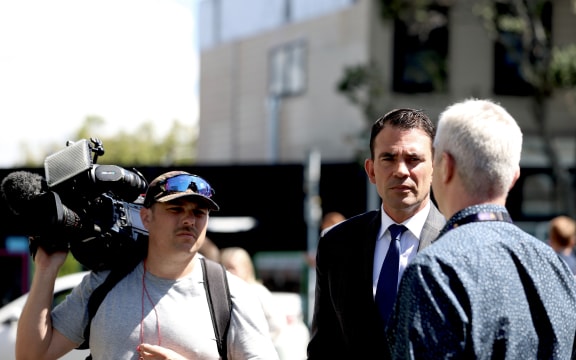
If there is to be any kind of “Newshub-lite” lifeline, a key question is: what is WBD prepared to pay for the programme?
Presumably not much, given that they said they had no choice but to carve the cost of Newshub — amounting to tens of millions a year — from its bottom line in line with its reducing revenue.
So is it worth any major media company’s while to commit to making news in video for another outlet? And it would have to be done in a hurry because the last Newshub bulletins screen on July 5.
When Newshub’s owners first announced they wanted to get rid of it in late February, its former chief editor Hal Crawford told Mediawatch the problem with finding a buyer was that minimum viable cost for a credible TV news operation was greater than anyone here was prepared to spend.
Longtime TV3 news boss Mark Jennings (now co-editor of Newsroom) said any substitute service on the fraction of the current budget would have another problem — TVNZ’s 1 News.
“You’re up against a sophisticated TVNZ product so viewers will have an immediate comparison. Probably that won’t be favorable for Warner Brothers,” he told RNZ.
TVNZ has its own news production problems after the cuts they confirmed this week.
“We’re proposing to establish a new long-form team within our news operation, which would continue to bring important current affairs and consumer affairs stories to Aotearoa in a different way on our digital platforms.”
TVNZ declined Mediawatch‘s request to speak to TVNZ’s news chief Phil O’Sullivan about that at this time.
Newshub’s news boss responds
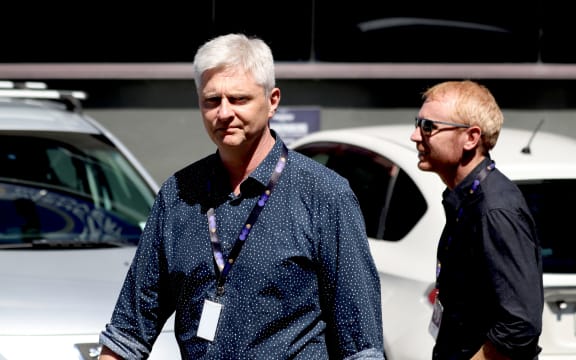
One who did though is Newshub news boss Richard Sutherland — appointed as interim senior director of news at Newshub in January.
It was his second spell at Newshub, during a career in broadcast news spanning four decades at almost every significant national news outlet in the country, including RNZ, where he stepped down as head of news a year ago.
In that time he’s experienced many a financial crisis in the business — but did he see this one coming?
“The last couple of weeks has been coming for quite some time. I think that the so-called legacy news operations have almost done too good a job of keeping the lights on and papering over the cracks. And we just got to a point [the industry] couldn’t paper over the cracks any longer.
“But when you look at audience behaviour and the fall off and revenue, particularly in the advertising market, then that doesn’t surprise me that we’ve got to where we’ve got to.”
But if the audience was big, the ad revenue would be too?
“It’s certainly by no means as big as it once was simply because people have other options available to them. The cliche is that you’re not in a war with the other media, but in a war for people’s attention.”
“It’s not so much the audience has changed so much as the dynamics of the advertising market that has really changed over the last sort of 10 to 15 years. The digital advertising — and the big two main players in that space, Facebook and Google — are eating everybody’s lunch.”
TV ad income on the slide
Annual advertising stats that came out this very week show media in 2023 attracted $3.36 billion across the whole of the media industry — about the same as in 2022.
But TV advertising revenue of $517 million in 2022 slumped to $443 million last year.
“That’s why what the TV industry has found is that can’t cut its costs fast enough to meet the falloff in the advertising income,” Sutherland told Mediawatch.
Digital-only ad revenue rose by $88 million in 2023 — but it’s Google and Facebook which secures the vast bulk of that.
But if this has been coming for a number of years, as Sutherland says, has there been enough planning for it?
After the closure of Newshub was mooted by its owner last month, seven of Sutherland’s colleagues led by investigations editor Michael Morrah put together a transition plan to keep Newshub on air in a few days.
Shouldn’t this sort of transition planning have been done at high levels over recent years right across the television business?
“Every media company that I’ve worked for or have observed over the last few years has been trying to innovate and get to a more sustainable level. The revenue was just collapsing far faster than anyone ever anticipated.”
“It annoys me when I hear people say older media haven’t innovated enough. We’ve done a lot of innovation. That’s pretty lazy politics to just say: ‘You need to innovate.’
“It’s also lazy politics to say, the government should just come in and bail everyone out. New Zealand Incorporated needs to have a big conversation about what it wants to do with the media and how it wants to fund it.
“For the past few years the industry has been like so many rats in a sack, fighting with each chasing a smaller and smaller amount of ad dollars. We need to get together and work out how we get ourselves collectively out of the sack,” Sutherland told Mediawatch.
Shortly before TVNZ and Newshub announced their cuts, there was a meeting of chief executives including Newshub’s owners Warner Bros Discovery to discuss a shared new service. TVNZ rejected the idea.
“But a lot has changed in the last couple of months. And I would like to think that eventually we’ll get to a point where we can actually have honest and productive conversations about what we can do to help each other as well as maintaining a degree of competition, but also realising that if we just keep fighting with each other, we’re not going to have a sustainable industry,” Sutherland said.
Would Sutherland want to work for a low-budget alternative to Newshub stave off the complete closure? And would Kiwis want such a service?
“There is a segment of the audience that appreciates a very highly produced, well-curated news bulletin every night. And there’s large numbers of people who no longer see that as part of their media diet.
“The trick is to provide options so that people can get what they want when they want it.
“It’s not really for me to say what a possible replacement for Newshub might look like. I’m well away from those negotiations.
“If we reach a stage where the media scene here withers away to nothing, there’ll be no-one to tell the stories. The media uncovers a lot of shady stuff in this country.
“And the fear of media coverage prevents people in positions of power and authority at all levels doing a lot of shady stuff. So it is important to document the ructions of the New Zealand media scene just like we do in other parts of the country.”
Minister in a corner
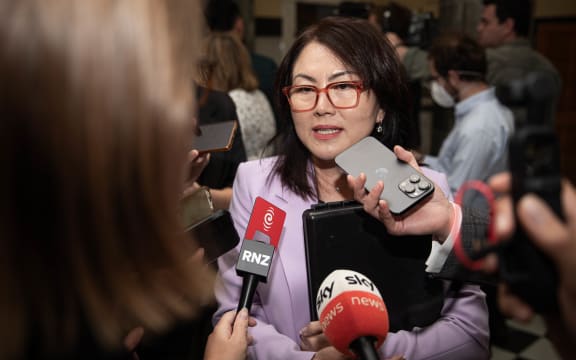
The day the axe fell at Newshub and at TVNZ, New Zealand’s screen producers’ guild Spada said “while the newsroom cuts have dominated media coverage to date, it is actually the whole production sector being impacted”.
“While TVNZ and Three aren’t giving definitive numbers at this time, Spada has calculated that we are looking at around $50 million coming out of our sector,” said president Irene Gardiner.
Spada is also asking the government to exempt screen funding agencies from the percent public spending cuts and to force the international streaming platform to support local production.
Spada called for” swift and decisive action” from the government on this.
Should they be holding their breath?
When confronted by reporters for a response to the current TV news crisis, Broadcasting Minister Melissa Lee said: “If only I was a magician, if I could actually just snap up a solution, that would be fantastic.
“But I’m not a magician, and I’m trying to find a solution to modernise the industry . . . there is a process happening.”
But the media are not expecting magic — just a plan rather than assertions of a process with no timeline.
She has repeatedly said she’s preparing policy in a paper to take to cabinet, but refused to give any details.
On RNZ’s Checkpoint, persistent and pointed questions from Lisa Owen yielded few further clues.
Newstalk ZB Drive host Heather du Plessis-Allan told Melissa Lee she was being “weird and shady” and the next morning ZB’s Mike Hosking told her she was using “buzzwords that don’t mean anything” and was doomed to fail.
Stuff’s Tova O’Brien reported that the need to consult coalition allies on policy means it can’t be progressed until after Winston Peters returns from overseas at the end of the month.
The under-wraps media policy is also not in the government’s recently-released quarterly action plan.
Meanwhile this week, our two biggest TV news broadcasters ran out of time.
Ex-minister leading resistance to cuts
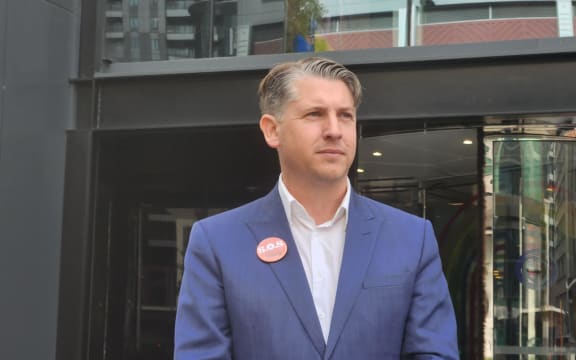
After his unenlightening on-air interview with minister Melissa Lee on Thursday morning, Mike Hosking’s ZB listeners told him she reminded them of ministers in the last government.
Coincidentally, one of them was also one of few people who did speak out about the crisis while it was unfolding.
Michael Wood represented TVNZ journalists from the E tū union as its negotiations specialist.
E tū is now taking legal action against TVNZ, claiming it failed to abide by the conditions of their employment agreement.
Could that reverse or wind back any of the cuts TVNZ has announced?
“That does remain to be seen. The collective agreement has very clear processes around what should happen if TVNZ wants to move forward and make changes. It requires [staff members] to be involved throughout the process, and for the company to try and reach agreement with them. Our very strong view is that that hasn’t happened.”
“Staff have said: ‘Look, five years ago, we came to you and said we want to do these things with our shows to make sure they have a sustainable future to make sure that they have a strong online platform.’ And [TVNZ] frankly has not demonstrated strategy and leadership around those things.”
“These are still shows that are very, very popular. Canceling them will reduce costs, but based on TVNZ’s own information that they’ve provided, it will reduce revenue by more.”
It’s been difficult to get any media company executives or even journalists at the two companies affected by these cuts to talk about them, even off-the-record.
Wood is one of the few people who has spoken frankly to broadcasters’ executives, albeit confidentially behind closed doors.
“There is a bit of a delicate dance which has to happen when media companies themselves are making these decisions. And media need to report on that.
“So I have some sympathy, but these aren’t just individual employment issues. This is a public policy issue . . . about whether we have a functioning and vibrant Fourth Estate.”
Wood was until last year a minister in the Labour government which could have averted the TVNZ cuts.
It spent more than $16 million planning a new public media entity to replace TVNZ and RNZ with a not-for-profit public media entity — but then scrapped it weeks before it was due to begin.
“You’ve just identified one of the core things that we’ve got to deal with. TVNZ, in terms of its statutory form, is neither one thing nor the other. It has a commercial imperative and it also has some other obligations in terms of public good.
“News and current affairs should be at the heart of that — and that is something that we should be much clearer about.”
This article is republished under a community partnership agreement with RNZ.









